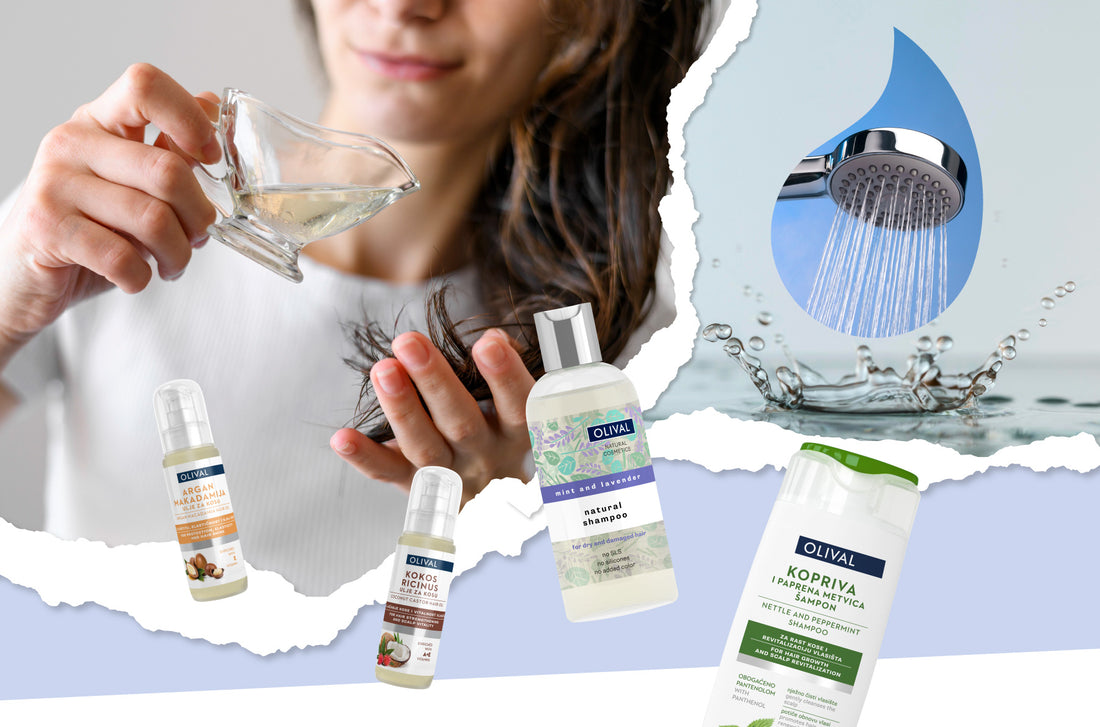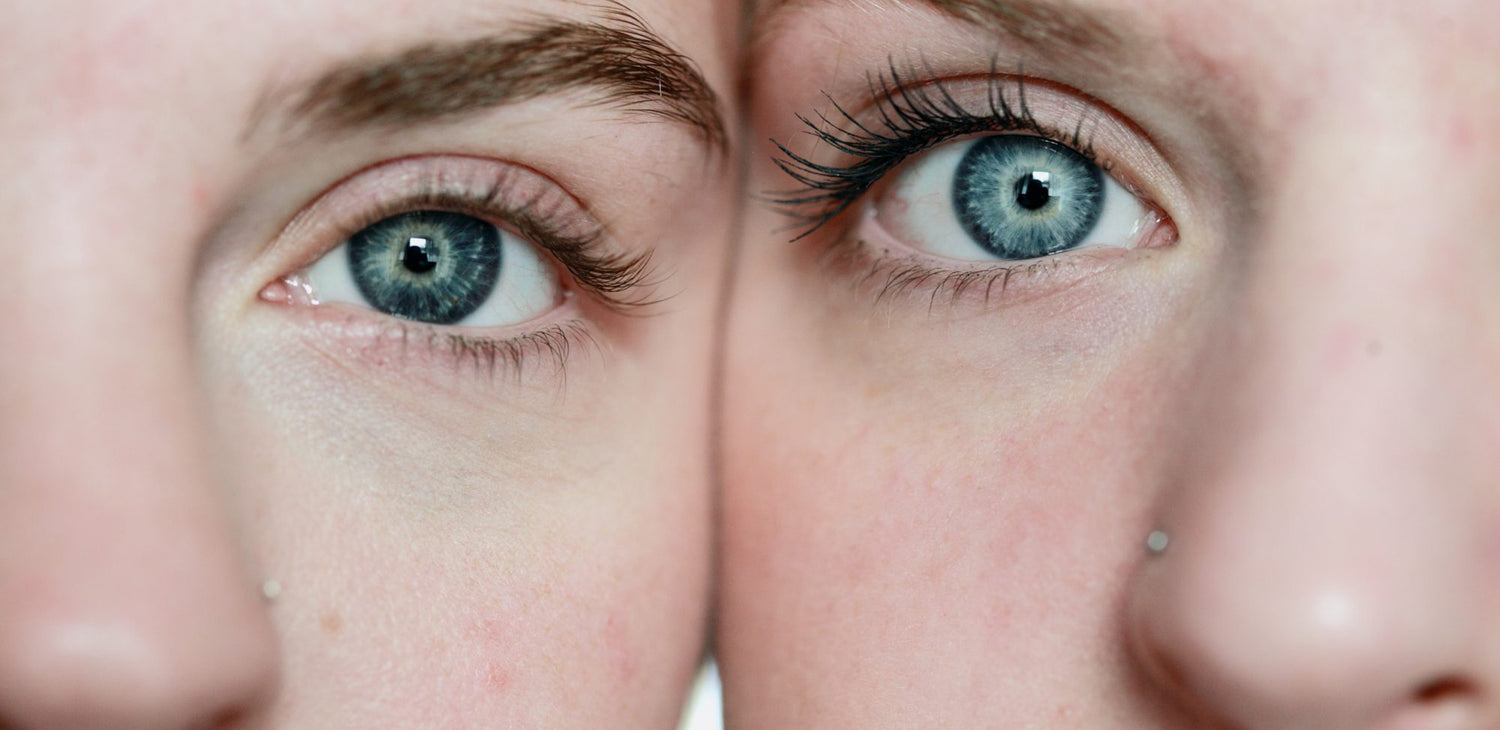One of the things that greatly affects the quality of hair is - water. More precisely, her hardness. Hard water contains high levels of minerals such as magnesium and calcium, as opposed to demineralized water that is used in households and, for example, in the production of cosmetics. Hard water is widely present in cities, and with the continuous deposition of minerals on the surface of the hair, it unfortunately contributes to hair damage. In the following, we present what kind of damage it is and how to prevent it.
Minerals cause brittleness, hair breakage...
Minerals in hard water can lead to dry hair, as they continuously coat the surface of the hair. The hair becomes less hydrated, less elastic and much less shiny. It is more brittle and prone to cracking. Also, the hair gradually becomes coarse, and it is more difficult to style it as desired. Hard water especially affects dyed hair - the color fades and the visibility of the pigment weakens. No less important, mineral deposits can really affect the skin of the scalp and cause or contribute to the appearance of flaking, itching, dryness.

Reduce the impact of hard water by choosing a shampoo
It is less well known that certain types of shampoos, or rather certain ingredients, can mitigate the effects of hard water on the hair. For this purpose, it is necessary at least occasionally to apply a shampoo with sulfates that provide deep cleansing and can remove the resulting deposits from the hair and scalp. It is clear that there are various types of sulfate surfactants, i.e. substances that foam and clean - and they are not all created equal. For example, SLES is a milder surfactant than classic SLS, yet very effective in foaming and removing mineral deposits. It is also useful to use shampoos with so-called chelators in the composition (e.g. Disodium EDTA ), i.e. substances that bind minerals to their structure and thus help reduce the impact of hard water. Depending on preferences and needs, it can be Castor Oil Shampoo , Nettle and Peppermint Shampoo . For other washes, the choice can fall on the simpler Natural Shampoo Mint and Lavender .
Hydration, oils, silicones
Deep hydration of the hair, but also the establishment of balance with emollient and protein care, along with the use of products to protect the hair from external influences are factors that have a significant impact on improving the quality of the hair and reducing the impact of hard water. In order for the hair to be in balance, it is necessary to find the "right" recipe. During the week, it is advisable to rotate products with glycerin and hyaluronic acid for moisture, then pakunge with Amla Oil , Coconut Castor Oil , Argan Macadamia Oil and silicones as in SILK ON Silicone Hair Serum . It is precisely the silicones in the last step that will adequately coat the hair and prevent the deposition of mineral deposits from the water.

Boost the shine with homemade vinegar and avoid hot water
Rinse your hair with a solution of diluted vinegar (apple or white) after shampooing. This can help dissolve mineral deposits and restore the hair's pH balance. Mix vinegar and water in a ratio of 1:3 and use as a final rinse. It is already well known that hot water damages the hair and scalp. Among other things, it affects the balance of natural oils and the health of the scalp. Warm water is a much better option. Excessive heat is not a good choice in any case, so the use of electric curlers and irons should be reduced. Curling your hair with socks, tights or the belt of a robe is now a real hit because it doesn't damage your hair, and you can also sleep with them.
Invest in water softeners and filters
Install a water softener in the entire household or use a replaceable filter for the shower head. Such devices and accessories can help reduce the mineral content in the water, preventing negative effects on the hair.







